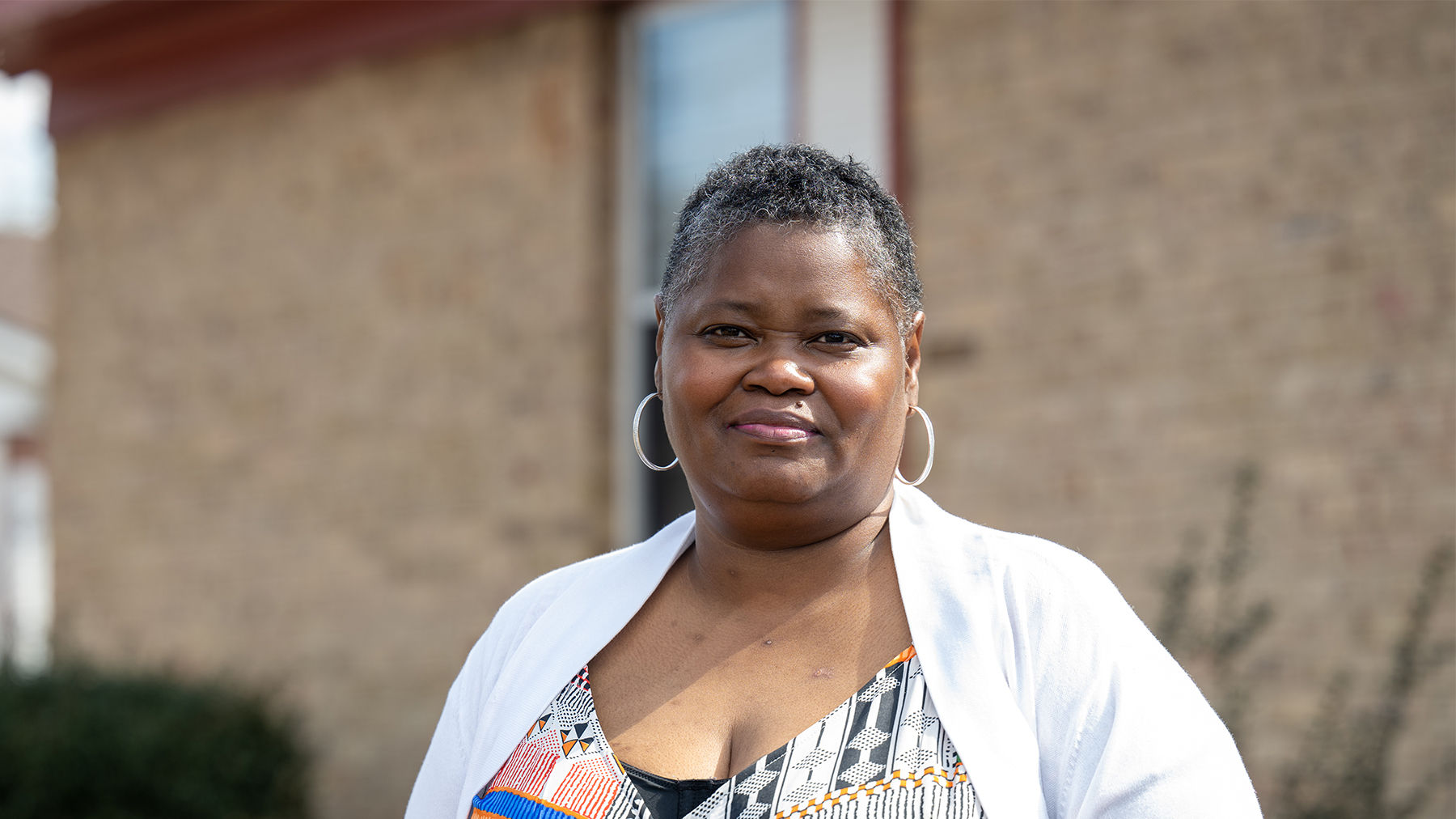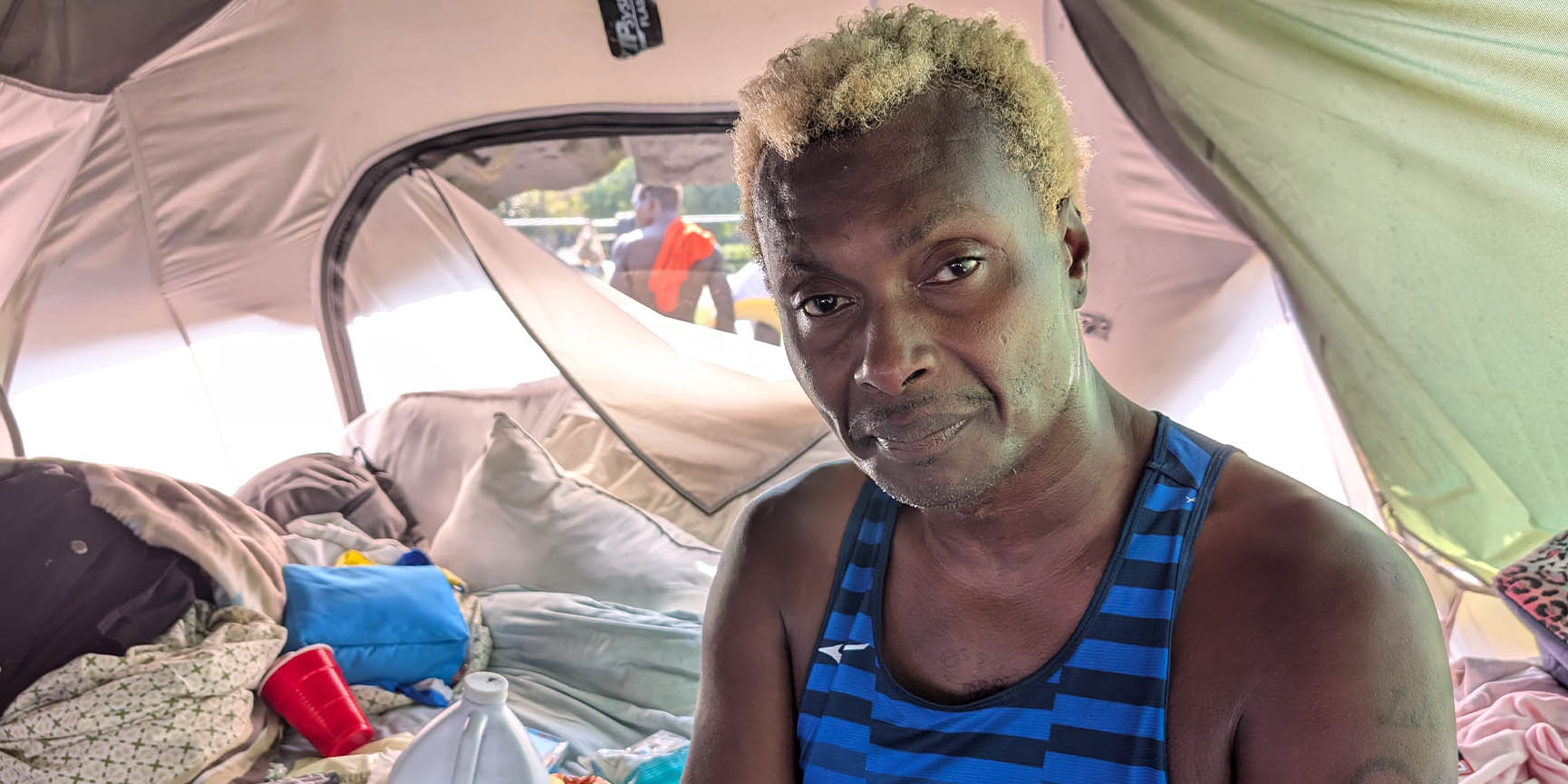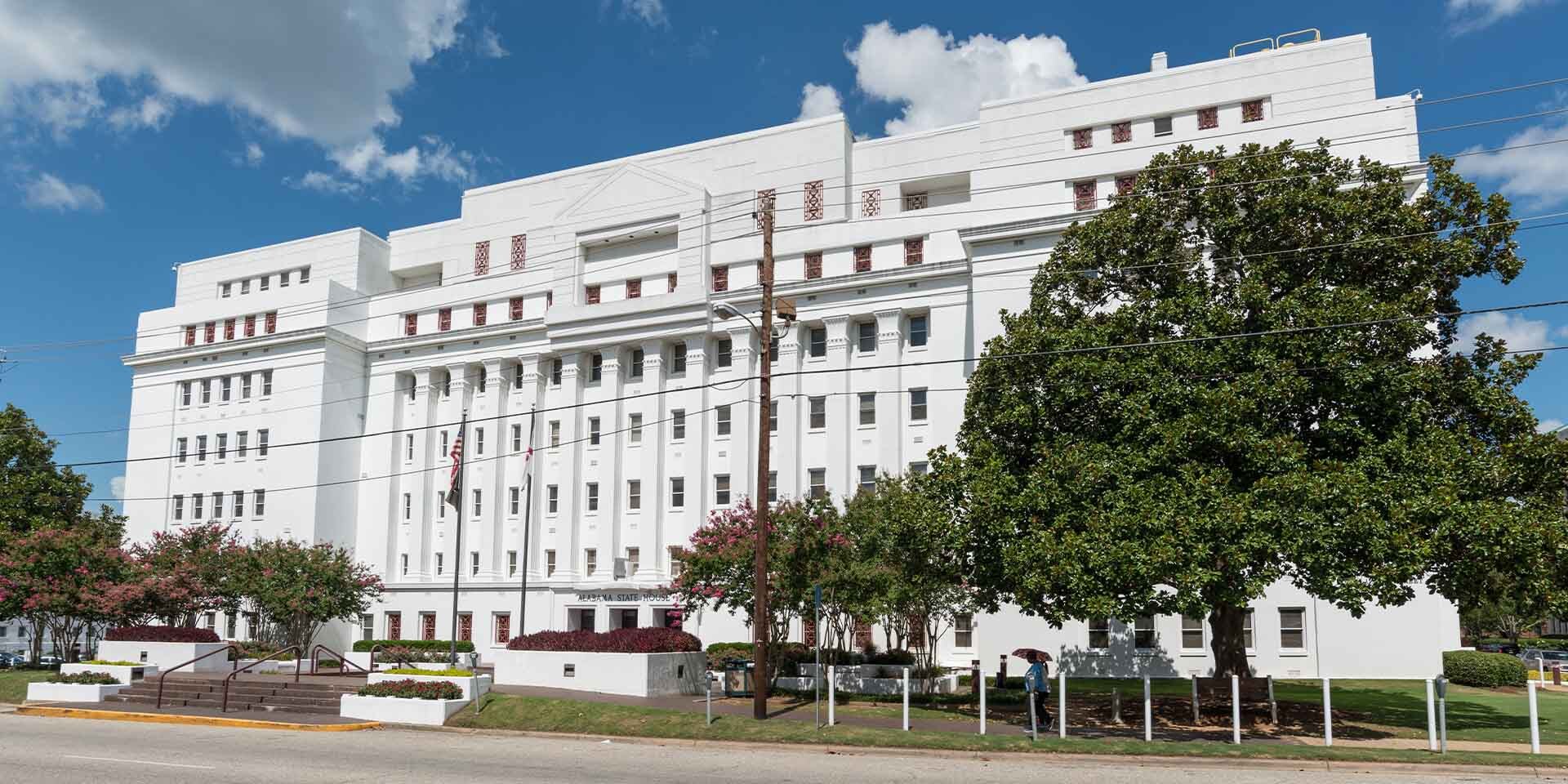The Southern Poverty Law Center (SPLC) is dedicated to safeguarding civil rights gains and building a more equitable and just society. Rooted in the South, where the legacy of the Civil Rights Movement continues to shape the struggle for racial equity, we partner with communities to dismantle white supremacy and strengthen intersectional movements to advance transformative policies and human rights for all.
Our work includes providing subject-matter expertise and technical assistance to partners, stakeholders, and state and local officials to drive impactful initiatives that ensure a future where Black and Brown communities are not only represented but deeply respected as part of a thriving democracy. We focus on:
- Strengthening Democracy: Expanding Access & Improving Engagement
- Ending Over-Criminalization and Protecting Property Rights of Low-Income Alabamians
- Countering Hate & Extremism: Ensuring Inclusive Education
- Eradicating Poverty: Protecting Social Safety Net Programs and Pursuing Affordable Housing
Strengthening Democracy and Voting Rights
$5MCost to Alabama taxpayers in court case against creation of second majority-Black congressional district
In a true democracy, voting should be a simple, convenient process that allows every eligible voter to participate easily. But too often in Alabama, this is not the case. Alabama voters face a range of obstacles that make voting in-person on Election Day a significant challenge — from onerous voter ID requirements and polling precinct changes to the closure of nearly half of the DMV offices in majority-Black counties that issue the required documentation. Furthermore, unlike other Southeastern states, Alabama’s early voting is limited to the cumbersome, excuse-required absentee process. The law requires a voter to declare, under penalty of perjury, that they will be unable to vote in person due to travel, disability, deployment, employment duties, or incarceration (when they are otherwise eligible to vote).
In 2024, following a lengthy court battle that cost taxpayers over $5 million, we celebrated the creation of a second majority-Black congressional district in Alabama. Then, just 84 days before the presidential election, advocates had to defend against the removal of thousands of eligible Alabama voters from the registered voter rolls. Without fair voting laws that ensure equal access, our democracy is undermined.
In response, the SPLC, in collaboration with community partners through the Alabama Voting Rights Coalition, drafted a state voting rights act. This bill would codify key provisions from the landmark 1965 Voting Rights Act that have been eroded since Shelby and Brnovich in order to stem the tide of vote dilution and to strengthen voter intimidation protections. The bill would also establish a state “preclearance” program so that before changes to voting laws could go into effect, local governments with records of discrimination must first prove that those changes would not harm voters of color or violate federal voting protections.
Recommendations:
- Authorize automatic and same-day voter registration policies.
- Permit no-excuse absentee voting.
- Establish preclearance procedures to safeguard voters against changes that violate federal voting protections.
- Restore voting rights to individuals with past criminal convictions.
Ending Unjust Imprisonment
Being behind on a trash bill should not be a crime. Furthermore, Alabama’s Constitution states that no one can be imprisoned for debt. Yet, in November 2022, Alabama made international news when an 82-year-old resident of the city of Valley in Chambers County was handcuffed and arrested at her home because she owed $77 in garbage service fees. Additional reporting revealed that she was one of hundreds of residents over the course of two decades who were arrested for nonpayment of trash fees.

Story
Alabama town uses ‘debtors’ prison’ for people who fall behind on garbage bills
The city of Valley has been arresting its citizens for years over past-due trash bills.
Similarly, in Chickasaw, dozens of residents were prosecuted for failure to pay trash fees yet were not allowed to start a payment plan to settle their accounts. Although the local prosecutors in both cities have since stopped prosecuting these cases, thousands of Alabamians remain at risk of arrest and criminal prosecution for missing even a single trash payment, regardless of their household’s financial situation.
Recommendations:
- Eliminate all criminal and civil penalties for failure to pay utilities fees by Alabamians living at or below the federal poverty level.
- Ensure continued access to trash, water, and sewer services for those with limited financial resources.
Eliminating Poverty and Economic Inequality
Alabama law enforcement agencies receive more than $5 million a year through state and federal civil asset forfeiture laws. While civil asset forfeiture is a legal process that allows law enforcement to seize property (e.g., cash, vehicles, or someone’s home) that is suspected of being involved in a crime — even if the property owner is not charged or even arrested for a crime — it is not hard to imagine how profit motive overshadows the fair administration of justice. This places an unfair financial burden on innocent individuals who may lose valuable assets without due process or adequate recourse.

Report
Ending Business as Usual: The Need for Alabama Civil Asset Forfeiture Data Transparency
SPLC report details the racial disparities within Alabama’s civil asset forfeiture process.
While these laws may have been initially intended to punish drug lords, the results have been far different, snaring mostly low-level offenders and many individuals who are never charged with a crime in the first place. In practice, civil asset forfeiture has become a for-profit venture for many law enforcement agencies. Just three years ago, the abusive forfeiture practices of the Brookside police grabbed the public’s psyche in a way that was unseen before. The SPLC was invited to speak as a subject-matter expert at town halls by local legislators and flagged these abuses for the Department of Justice — prompting them to deliver a letter of interest which led to the resignation of the town’s chief of police, city attorney and municipal judge. Everyone agrees that no one should be allowed to profit from criminal activity. But there is also widespread agreement across the ideological spectrum that civil asset forfeiture laws violate the most fundamental tenets of due process and are thus manifestly unfair to property owners. Furthermore, these laws create a system full of potential for abuse and erode trust in law enforcement.
In 2019, the Legislature began taking steps to address some of these challenges by requiring local law enforcement agencies to annually report details to Alabama Law Enforcement Agency (ALEA) about each seizure they conduct. For example, local law enforcement agencies are required to report “disaggregated” data such as the location of seizure, the name of the person or persons whose property was taken, the connected civil case number, etc. However, ALEA’s publicly available report only publishes the “aggregated” data or a summary of the reported seizure activities for each agency (e.g., total number of seizures, total number of default judgments). While this first step is appreciated, without access to specific, disaggregated data, it is impossible to determine whether local agencies are complying with their statutory requirement, nor will the public be able to identify when agencies might be using this practice to profit off the people they’ve sworn to protect and serve.
Recommendation:
- Require the Alabama Law Enforcement Agency (ALEA) to publish disaggregated data and include all mandatory forfeiture data received from local law enforcement agencies in its publicly available civil asset forfeiture report.
Eliminating Poverty and Economic Inequality
All Alabamians deserve a safe and affordable place that they can call home. However, far too many residents are struggling without shelter or are one surprise financial emergency away from being without a home. Last year, Alabama had a record budget surplus. Instead of investing some of that surplus in affordable housing or improving access to quality mental health and substance abuse treatment, the Legislature voted to criminalize unhoused persons seeking assistance from their local communities along public roadways.

Story
Advocates seek aid for unhoused people in Alabama’s ‘Rocket City’
In 2022, the SPLC partnered with Love Huntsville to raise concerns about the city’s decision to close a homeless encampment without sufficient notice.
Proven and successful approaches allow individuals to regain financial footing and reintegrate into their communities. In 2012, the Legislature established the Alabama Housing Trust Fund. The fund was intended to support the construction, renovation, and maintenance of affordable housing for Alabamians whose incomes are below 60% of their area’s median family income. However, the fund has no revenue source and has remained empty for over a decade.
The need is clear — thousands of hard-working Alabama families continue to struggle to secure a place that they can call home. The SPLC calls upon the Legislature to fund the creation and maintenance of affordable housing units. To preserve access, it is crucial that housing units paid for with state funds are not available for purchase by predatory, out-of-state investors. Alabama taxpayers’ investment should ensure its residents the dignity and stability that comes from access to affordable and safe housing.
Recommendations:
- Adequately fund sources, like the Alabama Housing Trust Fund, to increase the amount of quality and affordable housing options for low-income and working-class Alabama families.
- Reinforce the dignity of Alabamians by using the millions of dollars received from the U.S. Department of Housing and Urban Development (HUD) to ensure easy access to rapid-response, temporary housing and wrap-around services — including substance abuse and mental health treatment — for Alabamians experiencing temporary homelessness.
- Address the needs of local unhoused populations and the drivers of homelessness by investing in alternative strategies, such as affordable and secure housing, which has proven successful nationwide.
- Reject criminal penalties for people experiencing homelessness who solicit assistance; instead, provide pathways towards safe housing.
Eliminating Poverty and Economic Inequality
In recent years, we witnessed activists and politicians who advanced racist strategies to attack crucial anti-discrimination policies in K-12 and higher education settings. Our children deserve a truthful education about race and racism in this country. Attempts to quash these conversations are attacks on democracy, justice and community. Furthermore, they limit our ability, as a society, to deal frankly with our past or future. Students must learn the full picture of U.S. history, especially when it does not live up to our shared values. The U.S. is founded on ideals of liberty, freedom and equality, but built on slavery, exploitation and exclusion. Lesson plans and policies that suppress honest and vulnerable discussions and analysis of this history are harmful and fail to provide a path toward equity and mutual respect.
In addition to efforts to erase Black history from schools and to eliminate diversity and inclusion programs, a number of harmful polices that target the health and well-being of LGBTQ+ youth in Alabama have been put forward. These include bills that prevent children from openly expressing themselves at school, playing on sports teams with their peers, or using the restroom in which they feel safe. As a result, LGBTQ+ kids and their families are forced to navigate ongoing and unacceptable obstacles to their educational futures and well-being.
Recommendations:
- Reject the politicization of education. Instead, embrace the importance of teaching students to critically examine the history of slavery and racial discrimination, and value the cultures and diversity of the United States.
- Support the dignity of LGBTQ+ individuals, particularly youth. Reject policies that further harm children by censoring their personal expression, denying them access to educational materials, or putting them at greater risk of bullying or self-harm.
- Retain the independence of local libraries as safe havens within their communities.
Eliminating Poverty and Economic Inequality
A key indicator of a thriving society is the health of its people. Access to affordable and quality health care is key to a family’s economic security and eradicating poverty.
10states, including Alabama, have not expanded Medicaid coverage to those falling into the health care access gap.
Alabama is one of only 10 states that has not expanded Medicaid coverage to those falling into the health care access gap despite it being cost-effective to do so. Multiple studies show that additional tax revenue and cost savings for uninsured residents would more than cover the state’s outlay for Medicaid expansion that was not otherwise covered by federal dollars. According to a 2024 Center for Healthcare Quality and Payment Reform report, 27 of Alabama’s 51 rural hospitals are struggling financially and at risk of closure, with 23 of them being at immediate risk of closure. Driving factors for the crisis are a combination of rising costs of providing care and expenses related to uninsured community members. Medicaid expansion would help ease the financial burden for the facilities which would then prevent a health care desert by keeping the hospital and its well-paying jobs in the community as well as supporting the local economy and schools generally.
Further exacerbating access to care is that tens of thousands of low-income Alabamians (many of them children) have been removed from Medicaid rolls for improper procedural reasons or poor agency service. Not only has the Legislature failed to ensure residents have access to affordable, quality health care, but they have made statutory changes that prohibit Alabama youth from accessing lifesaving, gender-affirming care. Everyone deserves access to quality medical care, uninfringed by politics or rhetoric.
Recommendations:
- Authorize the expansion of Medicaid in a way that enables Alabama to accept the federal funding available to do so.
- Restore enrollment of Medicaid-eligible Alabamians removed from the Medicaid rolls. Prioritize funding for rural health clinics and mental health services.
- Ensure individuals and families can make medical decisions in consultation with their health care provider; allow medical professionals to provide care in accordance with their professional best practices and nationally recognized standard of care.
Eliminating Poverty and Economic Inequality
$10MAlabama’s investment to ensure the Summer EBT program continues to operate through summer 2025.
Congress has long recognized the importance of food security programs. Beginning in 2011, it established and funded the Summer EBT pilot program. In 2022, with overwhelming bipartisan support, Congress passed the Consolidated Appropriations Act, which made the Summer EBT program permanent.
The summer Pandemic-EBT Program has proven to be a lifeline for countless Alabama families, ensuring that children in households experiencing food insecurity receive the nourishment they need even when schools are closed. Day care centers also use the funds year-round to provide infants and toddlers with consistent access to healthy meals. Further, according to the USDA, every dollar spent on food assistance generates local economic activity. Based on the number of eligible children, Alabama could expect an annual economic impact of over $100 million from Summer EBT benefits.
Proudly, Alabama was one of the first states to roll out the program in 2022. We are grateful that the Legislature has appropriated $10 million to ensure the program would continue to operate through summer 2025. With almost a quarter of a million of Alabama youth living in poverty and reliant on this funding for food, it is critical that the Legislature continue to use all available tools to guarantee that Alabama’s children don’t go hungry.
Recommendations:
- Provide adequate and continued funding for universal breakfast and summer nutrition programs for school-aged children.
- Appropriate necessary matching funds from the USDA annually, or as available.
- Establish outreach to children and families who are eligible but not participating in the Summer EBT program.
Image at top by Daniel Vorndran



